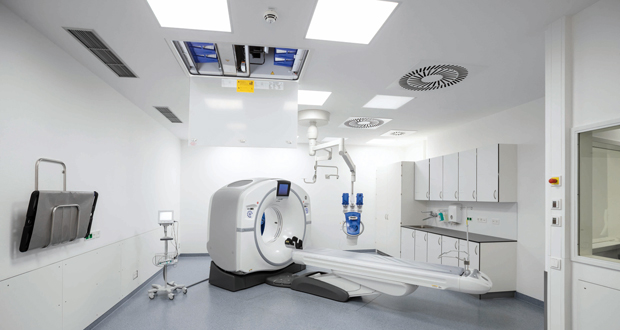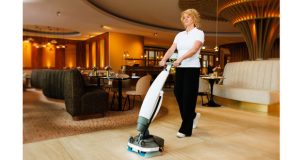By Malcolm Youll, Managing Director, Weiss Technik UK Ltd
As the UK emerges from the Coronavirus lockdown, the main question on everybody’s mind is: what needs to be done to minimise the risk of infection? Hygiene has of course been one of the top issues during the pandemic. Hospitals have always made sure to decontaminate rooms after they have been used by Covid-19 patients. But what about public transport, offices, shops, schools, restaurants, or conference venues?
It looks as if social distancing and upping the disinfection regime won’t be enough. Whilst it is thought that the Coronavirus spreads via larger respiratory droplets as well as via direct contact with contaminated surfaces (so-called fomites) and infected people, recent studies suggest it may also spread via small airborne droplets (so-called aerosols). Because they are so small, aerosols can linger in the air for long periods of time – particularly in badly ventilated indoor environments -, enabling airborne transmission. Other infectious viruses, such as smallpox or measles, are recognised to be transmissible via the airborne route.
This potential hazard has been recognised by the Federation of European Heating, Ventilation and Air Conditioning Associations (REHVA), who have recommended ventilation control measures. An effective ventilation system, perhaps augmented by air disinfection and particle filtration, can help to reduce the overall indoor infection risk from airborne particles by diluting and controlling airborne pathogenic material. The dilution of internal air is aimed at reducing the risk of airborne viral transmission by reducing the time during which people are exposed to any airborne viral aerosols, and at reducing the chance for these aerosols to settle on surfaces. Evidence shows that viruses (including Covid-19) can survive on some surfaces for at least 72 hours, so any action to limit surface contamination is beneficial.
As Covid-19 may not be the last time we face a pandemic, we should perhaps consider it as an opportunity to make lasting changes to improve general health and wellbeing at work. Hygienic room climate issues, ventilation and air-conditioning systems are an important aspect of that. If planned poorly or not serviced properly, air conditioning units can quickly turn into transmitters of disease-causing germs. And besides, due to energy costs, ventilation rates in many public and office buildings are significantly lower than in medical settings, meaning that airflow is limited and the risk of infection higher.
As a technology provider, Weiss Technik is developing ways to prevent the growth and spread of bacteria, mould and viruses in air-conditioning systems. The new innovative recirculating air-cooling system Vindur Top was developed for use in hospitals, on wards and in examination rooms, but also for public and industrial buildings, be it universities, schools, nurseries, hotels or office buildings, as well as trains and planes. The system is often used as a supplementary or retrofit solution if the existing primary building climate equipment is no longer sufficient and additional cooling is required.
Vindur Top features HEPA filters (which filter 99.95% of all microorganism, bacteria and viruses from the air), UV lamps and antimicrobial interior coating. In addition, the system can be equipped with optional thermal disinfection. This newly developed method effectively prevents the growth of micro-organisms such as bacteria and mould in the air-conditioning unit. After the unit is switched off, heat exchangers and condensate drip tray are heated sequentially for about 10 minutes to approx. 70°C. This dries out the biofilm resulting from the cooling process, reliably destroying micro-organisms and viruses.
Viruses, germs and bacteria spread easily, particularly in high-occupancy rooms, be it hospital rooms, trains, or offices. Efficient ventilation not only reduces infection rates but also improves air quality, staff wellbeing, and ultimately productivity.
For more information visit www.weiss-technik.co.uk or call +44 1509 631590.
-ends-
To have your industry news published in the pages of FMJ’s news section, Month in FM, and here online on fmj.co.uk, please send your news and image to Danny Grange danny.grange@kpmmedia.co.uk
The view or information contained within these unedited press releases, are that of the company producing it and not necessary the views of kpm.





